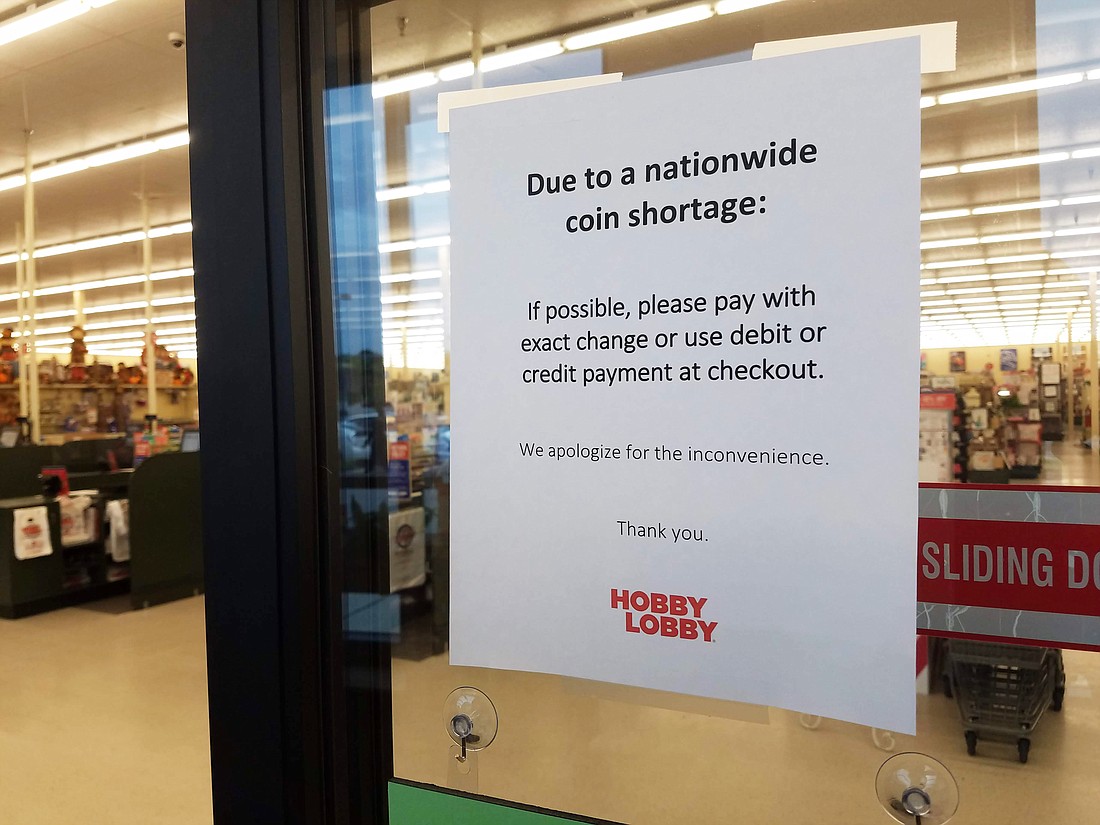
Those penny trays at retail stores might be worth their weight in gold these days.
The Federal Reserve Board, which manages U.S. coin inventory and distribution, said because of the COVID-19 pandemic, coin deposits from banks to the Fed have significantly declined.
Meanwhile, the U.S. Mint decreased production of new coins because of measures put in place to protect employees.
“We cannot get coin,” said Rob Rowe, owner of Rowe’s IGA Supermarkets.
Rowe said he usually gets coin – the collective term for coins – from his bank, but said banks are not receiving it from the Fed.
“We will have to go to debit and credit cards only when coin runs out,” Rowe said.
“We are asking customers to bring in change, but that I assume will not make a dent in the needs,” he said.
Combined with the closing of many businesses during the pandemic, the decreased coin production disrupted the normal circulation patterns for U.S. coins on a national scale, according to the Fed.
The Fed last week announced the formation of a coin task force, including representatives from banks and retailers, to come up with recommendations by the end of July to address the issue.
Starting in late June, Frank Wallmeyer, owner of Standard Feed and Seed near Downtown, couldn’t access enough coin from his bank.
He enlisted family, friends and neighbors – even his personal banker – to roll their coins from home for his use.
Wallmeyer has enough now, in fact a month’s worth, and worries that he might be hoarding them – like people who stocked up on toilet paper.
“But I would feel worse if I had customers coming and couldn’t make change for them,” he said.
He usually keeps $200 in coin on hand at all times and usually makes at least four trips a week to the bank to make change.
Wallmeyer said some financial institutions appear to have enough coin for customers.
Bennett Brown, market president at Heritage Bank in Jacksonville, said he hasn’t seen a problem.
“But some of our branches that have customers that use a lot of cash are getting the same response from the Fed. I think the Fed is rationing coin to all the banks,” he said.
Sandy Baker, VyStar Credit Union vice president of communications and public relations, said the organization is in contact with its branches and armored car service.
“We are not seeing any issues but keeping a close eye on the matter,” Baker said.
Lee Underwood, communications director at Synovus, said the bank is aware.
“It’s an industry issue and we’ve experienced it, although the severity varies by geography and branch,” he said. “We’re working closely with the Federal Reserve and encouraging customers to bring us any spare coins.”
Federal Reserve Chairman Jerome Powell said during a virtual hearing with the House Financial Services Committee on June 17 that the partial closure of the economy affected the flow of coins through the economy, according to CNN.com.
“The places where you go to give your coins, and get credit at the store and get cash — you know, folding money — those have not been working. Stores have been closed,” he said. “So the whole system has kind of, had come to a stop.”
Powell said Federal Reserve officials believe the shortage is temporary.
“As the economy reopens, we’re seeing coins begin to move around again,” he said.
Wallmeyer suggests retailers request and patrons offer change.
“If you’re a business owner, I’d recommend contacting family and friends to purchase any and all loose coins that they may have,” he said.
“If you’re an individual who has loose coins, as we all do, please offer them to a local retailer or restaurant.”
Wallmeyer said he uses twice as many pennies and quarters than dimes and nickels.
“Let’s get those coins off the sidelines and into the game,” he said.
Customers might want to leave a penny rather than taking one.